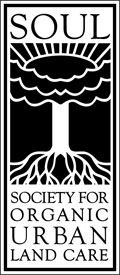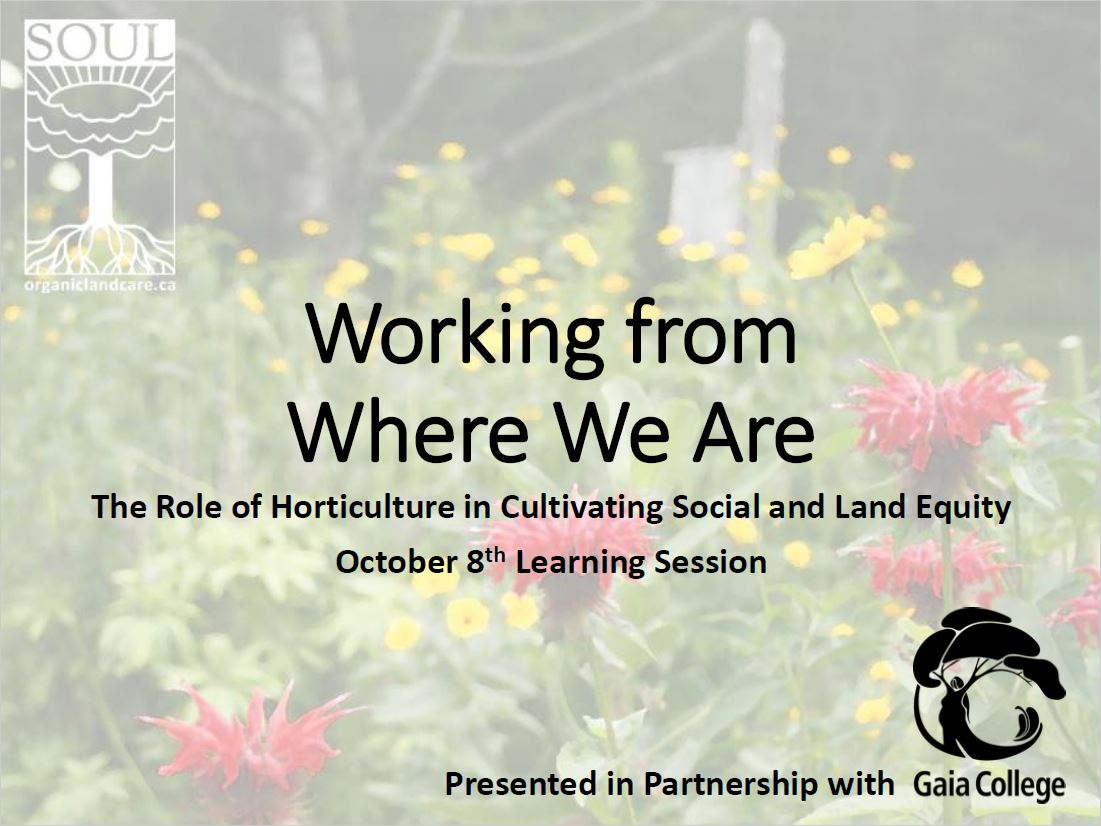October: Working From Where We Are

Thank you to everyone who registered for this session.
The video of the presentation and the Q&A that followed is posted below.
Click on the image below to download the slide show of this session |
“But what can I do about it?”
Witnessing seemingly overwhelming challenges, while feeling like we have no real power to create change or to help those who suffering is something that many of us struggle with these days.
The question of “What can I do?” has led me on a journey of learning and change over the last few years. “What can I do about climate breakdown?” “What can I do about biodiversity collapse?” “What can I do with the reality that I live and work on unceded Algonquin lands?” “What can I do about inequities I can see within my community and across Turtle Island?”
Current protests against anti-black racism, calls for decolonization and land-back and stories of exploitation within our agricultural and system have many of us asking “But what can I do?”
While political activities, from voting to supporting and promoting social movements, are important, we often have the greatest individual ability to make change within our personal sphere of influence. Adjustments in how we apply our resources, whether time, social capital or disposable income, and go about the day-to-day activity of making our livelihoods, can have far greater cumulative influence than donations or occasional volunteer work.
I’m a plant person. I garden, I have worked in the field of horticulture for over 20 years, I teach sustainable landscape design. While this may not be what springs to mind when it comes to addressing social issues as overwhelming as the inequities of anti-Black and anti-Indigenous racism (or climate change, biodiversity loss, ecosystem breakdown etc.), there is more potential for supporting social and land equity within horticultural activities than may be apparent at first glance.
Over the last couple of years of actively seeking out Indigenous and other marginalized voices on the topic of land and plant relationships, and trying to understand how to give back, it occurred to me that the field of horticulture directly or indirectly influences almost all urban greenspaces. This influence can be put to work in developing solutions to a variety of issues:
- Over half of the Indigenous people within Canada live in urban communities and most have little or no access to land and greenspaces.
- Food insecurity is rampant within Canada and particularly affects racialized communities, the majority of whom do not have access to land to grow food for themselves, or to grow and sell food within the community.
- The broad displacement of native plant species has widely recognized ecological impacts, especially for pollinator populations. Their displacement also has cultural implications for the Indigenous Peoples who have lived in relationship with those species for millennia.
- The resources consumed in our projects are sourced somewhere. Learning about their sourcing and lifecycles can allow us to influence landscapes beyond the boundaries of our project sites.
The October sessions of the discussion series will introduce these and other related topics and explore how, as gardeners, horticulturalists, designers and landscapers, we can take real, day-to-day, grass roots actions that will help undermine inequities and cultivate stronger, more inclusive and more vibrant urban communities.

